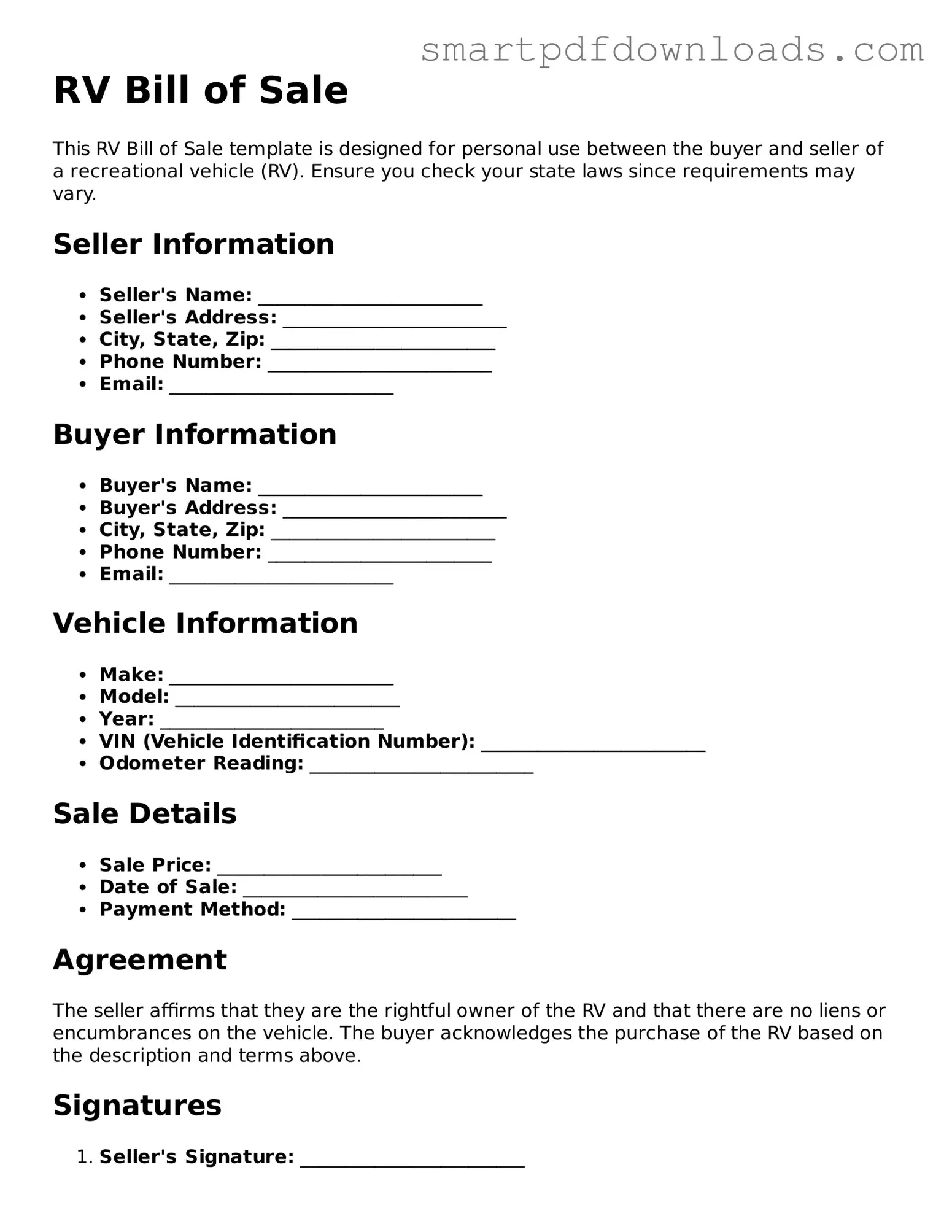Free RV Bill of Sale Form
An RV Bill of Sale is a legal document that serves as proof of the sale and transfer of ownership of a recreational vehicle. This form outlines essential details about the transaction, including the buyer, seller, and vehicle information. Understanding its importance can help ensure a smooth transfer and protect both parties involved.
Edit RV Bill of Sale Online

Free RV Bill of Sale Form
Edit RV Bill of Sale Online

Edit RV Bill of Sale Online
or
⇓ PDF File
Finish the form and move on
Edit RV Bill of Sale online fast, without printing.